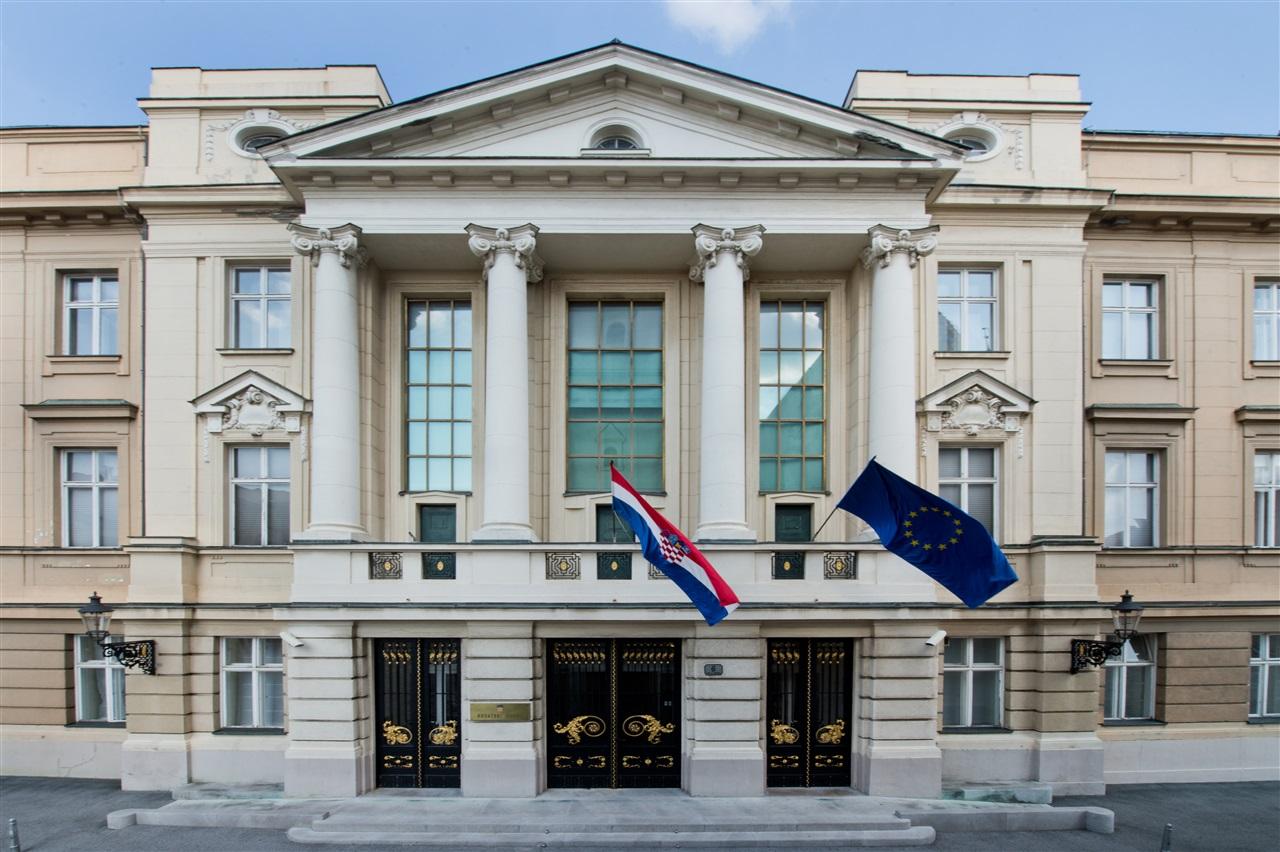
Zagreb - The Croatian Parliament's Committee on the Constitution on Monday endorsed draft amendments to two laws which make it possible to dissolve town councils which refuse to adjust their statutes to legally guaranteed rights of ethnic minorities, however, committee members proposed that the amendments not be adopted under fast-track procedure but be discussed in two readings.
The amendments received unanimous support, but the committee session was not attended by members of the opposition Croatian Democratic Union (HDZ) and Croatian Democratic Party of Slavonia and Baranja (HDSSB).
The committee decided that the amendments should not be discussed under fast-track procedure after its chair Pedja Grbin of the Social Democratic Party (SDP) said that amending the Act on the Use of Ethnic Minority Languages and Scripts required a two-thirds majority support.
Public Administration Minister Arsen Bauk said that the government was not against the adoption of those amendments and amendments to the Act on Local and Regional Self-Government Units under ordinary procedure so that more time could be left to achieve a consensus with the Opposition.
"Without the opposition, the legislation will not be adopted because it requires the support of two-thirds of MPs. We want to close this issue," said Bauk.
He repeated that the amendments were formulated based on the Constitutional Court's ruling of August 2014 which declared as unacceptable the question of a referendum campaign on the use of minority languages and scripts. The Constitutional Court at the time instructed the government to formulate and forward to parliament, within one year, amendments that would define mechanisms in cases when local representative bodies refuse to align town and municipal statutes with legislation regulating ethnic minority rights.
Bauk instructed the Vukovar Town Council to specify in the town statute in which parts of the town Croatian-Serbian, namely Latin-Cyrillic signs would be put.
"Claims that Article 8 of the Constitutional Law on Ethnic Minority Rights makes it possible to exempt Vukovar from bilingualism have proven to be untrue because the Constitutional Court has abolished that provision in the town statute," said Bauk in response to statements from the HDZ that the situation with the Cyrillic script in Vukovar could have been averted had the government applied the regulation under which ethnic minority rights are exercised for the purpose of promoting tolerance and co-existence between minority communities and the majority people.
Bauk said the strong-worded reaction of the Vukovar town authorities to the proposed amendments was unnecessary "because the Town Council still has one month to regulate the use of ethnic minority languages in its statute."
Committee member Milorad Pupovac of the Independent Democratic Serb Party (SDSS) said that questioning the majority vote whereby the parliament should amend the Act on the Use of Ethnic Minority Languages and Scripts was dangerous, "both in terms of intent and consequences."
"We are witnessing back-door attempts to deregulate minority rights by some parties that want to have those rights restricted," said Pupovac.
He recalled that the Act on the Use of Ethnic Minority Languages and Scripts was originally adopted by a two-thirds majority vote and that its amendments should be passed in the same way.
"If colleagues from the HDZ do not want to sit here, and if the Vukovar Town Council's commission in charge of creating the town statute does not want representatives of the Serb minority to sit on it, that is a bad sign. That means that the main opposition party is abandoning the policy which it had advocated from 2002/2003 to 2011," said Pupovac.
The Committee on the Constitution also formulated the final referendum bill, giving up on a previous regulation under which signatures of support for referendum campaigns would be collected solely in public administration offices and electronically, via the e-citizens system.
Under the final bill, signatures will be collected electronically but organisers of referendum campaigns will also be able to collect them in public places.
Grbin specified that it would not be possible to collect signatures in religious, educational and medical institutions, in state and public administration buildings, etc.
The bill also says that after every day of signature collecting, organisers of referendum campaigns will have to hand in the collected signatures to the relevant institution, namely the state administration office in the county or town where the signatures are collected.
Dragutin Lesar of the Labour Party believes that the new legislation should oblige local self-government units to ensure a sufficient number of signature-collecting locations and that it should be at least the same as the number of polling stations in those units.

.png)
